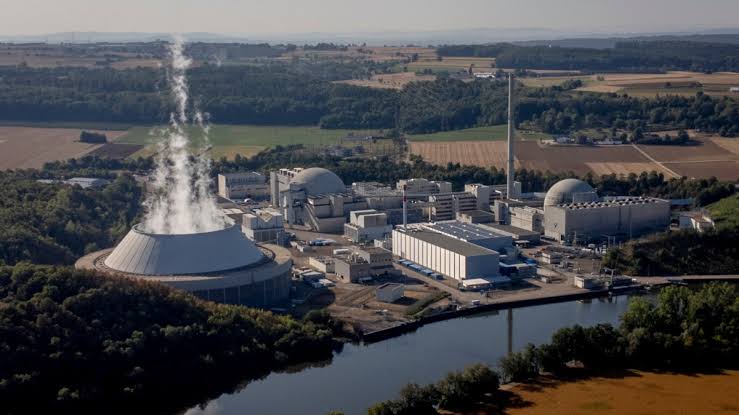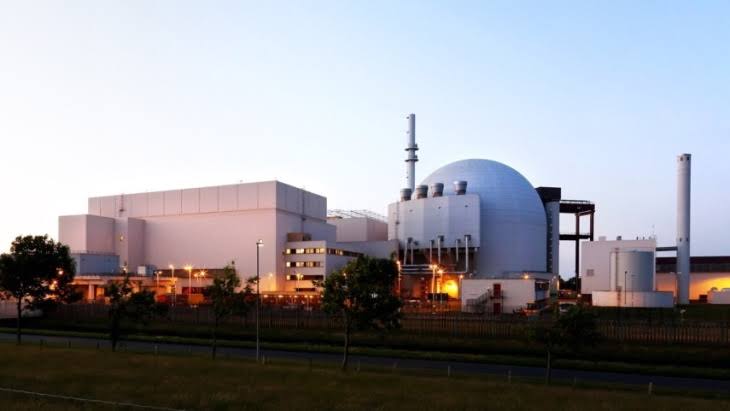Germany will shut down its final three nuclear facilities, trusting that it can achieve its environmental goals without nuclear energy despite the energy crisis brought on by the conflict in Ukraine.
The Isar 2 complex in Bavaria and the Emsland plant in the north will soon be distant memories, as will the cloud of white steam that has been rising over the river in Neckarwestheim, close to Stuttgart, since 1989. The largest economy in Europe is stubbornly sticking to its objectives at a time when many Western nations are increasing nuclear power as they move to cleaner energy sources, albeit not everyone is in agreement.

Since 2002, Germany has sought to phase out nuclear energy, but former chancellor Angela Merkel hastened the process in 2011 in response to the Fukushima accident in Japan. According to Merkel at the time, Fukushima demonstrated that nuclear energy risks “cannot be safely controlled, even in a high-tech country like Japan.” In a nation where there is a strong anti-nuclear movement driven by worries of Cold War confrontation and tragedies like Chernobyl, the decision to leave the reactor was well received. However, the Russian invasion of Ukraine in February 2022 posed a threat to the plans, ending the availability of cheap Russian gas and plunging the nation into an unheard-of energy crisis.

The public’s perception started to change just a few months before Germany’s final three facilities were scheduled to be shut down on December 31, 2022. There have undoubtedly been calls to expand the power plants given the high cost of electricity and the pressing issue of climate change, according to Neckarwestheim mayor Jochen Winkler.
The Greens, who are vehemently opposed to nuclear power, are part of the Olaf Scholz administration, and they decided to extend the life of the plants until April 15. If the winter had been more challenging, if there had been power outages and gas shortages, a fresh discussion may have taken place. But because to increased imports of liquefied natural gas (LNG), Winkler noted, “we experienced a winter without too many issues.

Approximately 150 people from the town of Neckarwestheim, which has 4,000 residents overall, work at the facility, but Winkler is unconcerned with the choice. There is no use “going backwards” and turning the process around, he argued, because “the wheel has already been turned too far.” Since 2003, Germany has stopped operating sixteen reactors. In contrast to the total nuclear plant output of 30.8% in 1997, the three final units supplied 6% of Germany’s energy in 2018. A decade ago, fewer than 25% of Germany’s energy came from renewable sources; in 2022, that percentage increased to 46%.
- Misleading Video Alters Prime Minister Shehbaz’s Speech Targeting Political Rival, Not His Party - 21/04/2024
- ATC Grants Three-Day Remand for Suspects in Ichhra Bazaar Harassment Case - 19/03/2024
- Pakistan, India, and Bangladesh Lead World in Severe Smog Crisis, Exceeding WHO Guidelines - 19/03/2024


